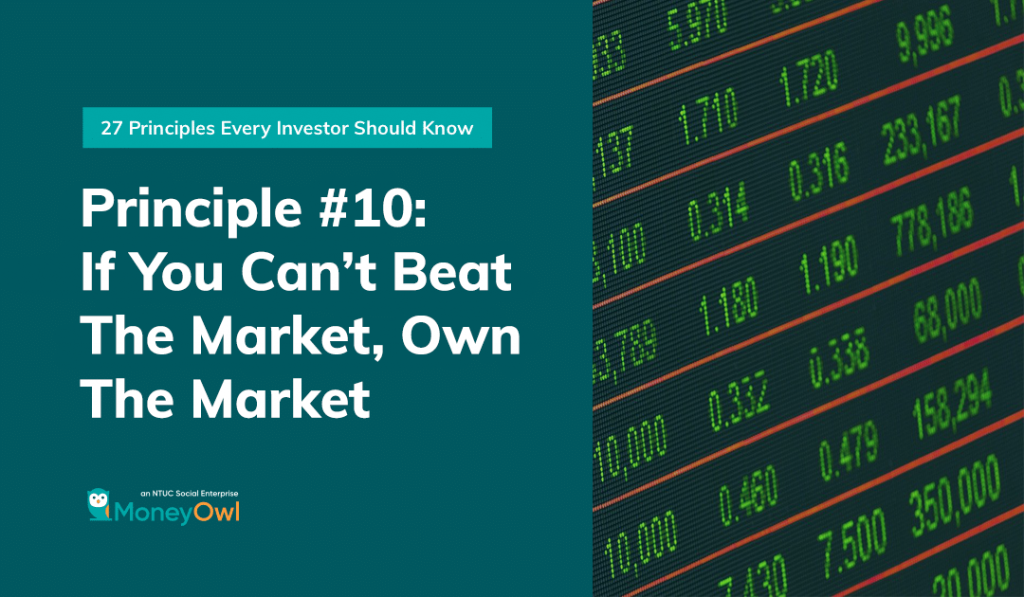Note: It was announced in November 2023 that MoneyOwl will be acquired by Temasek Trust to serve communities under a re-purposed model, and will move away from direct sale of financial products. The article is retained with original information relevant as at the date of the article only, and any mention of products or promotions is retained for reference purposes only.
______________
Why it’s extremely easy to own the market through funds
In the last few articles, we learned that it is hard to predict the markets and while it’s possible for some people to sometimes outperform the market, it is difficult to do so consistently. And the reason for this is because markets are efficient – it represents the information that millions of buyers and sellers incorporate into the prices of securities every day when they transact, driving prices to a fair market value.
If you’re still not convinced about what science and academics tell us about the financial market, check this out. Back in 2012, an experiment was conducted to see which of the following three groups of investors would perform the best in the stock markets – a trio of experienced money managers, a group of schoolchildren aged 11 to 18 years old, and a house cat named Orlando. Each group of investors was given £5,000 to invest in any 5 companies from an index and they could make trades once a quarter. Orlando made his pick of securities by throwing his favourite toy on a grid of numbers representing the different companies in the stock market.
By the end of the year, the group of money managers had £5,176, the group of schoolchildren had £4,840 and Orlando had £5,542! If you think Orlando got lucky, you are most probably right. A great stock picker is like a great coin flipper. In fact, studies have found that active fund managers as a group do worse than random chance.
So, if you can’t beat them (the market), why not just join them? Today it has become extremely easy to own the market through funds that mimic an index or hold the position in securities that represent the whole financial market. And because we also know that the market follows a pattern – it always goes up in the long run, it also gives us a higher probability of a positive return.
This series is adapted from the book, 27 Principles Every Investor Should Know, written by Steven J. Atkinson. Read the rest of the principles:
- Investing Principle #1: Always Start With A Plan
- Investing Principle #2: Start Investing As Early As You Can
- Investing Principle #3: Invest For The Long Term
- Investing Principle #4: Investing Is Hard – Get Help From A Trusted Advisor
- Investing Principle #5: Know the Difference between Advisers and Salespeople
- Investing Principle #6: Put Science and Academic Research on Your Side
- Investing Principle #7: Don’t Try To Pick Individual Stocks
- Investing Principle #8 Don’t Try to Predict Markets
- Investing Principle #9 Invests as if Markets are Efficient
Author: MoneyOwl’s Solutions Team




